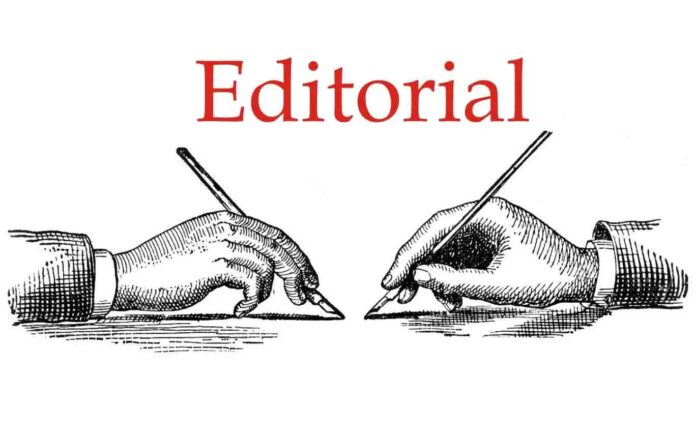The recent incident at the Sub-District Hospital in Chadoora, Budgam, where a dog was found occupying a doctor’s chair in the emergency ward for hours, is a stark reminder of the alarming negligence prevailing in our public healthcare system. The suspension of seven healthcare staff members in response to this incident, while commendable, only scratches the surface. It reflects a deeper, more disturbing malaise — a culture of apathy and irresponsibility among certain medical personnel and administrative authorities. That a hospital’s emergency ward — a place meant to provide immediate care and life-saving treatment — could be so poorly monitored that an animal could casually occupy a doctor’s chair, reveals the gross neglect of duty. This is not an isolated incident but part of a growing pattern of misconduct and dereliction that has been reported across several healthcare facilities in the region. Hospitals, especially emergency rooms, should be sanctuaries of care, safety, and prompt response. Instead, such episodes undermine public trust and endanger lives. The fact that this came to light only after a video surfaced on social media is particularly troubling. It raises serious questions: would there have been any action at all if the incident hadn’t been made public? How many such cases go unnoticed or are silently brushed under the carpet? The accountability mechanisms in our healthcare system appear to be reactive rather than proactive. It is imperative for the Health and Medical Education Department to view this incident not as an aberration but as a signal for widespread reform. There must be a thorough audit of hospital management practices, staffing protocols, and supervision standards. More importantly, a culture of discipline, responsibility, and compassion must be inculcated among hospital staff — not only the junior-level employees but also at the top levels of administration. Furthermore, this should serve as a clarion call for the government to implement institutional reforms. Every hospital must have a clearly defined accountability chain, and senior medical officers and administrative heads should also be held responsible for such lapses. Without a robust mechanism to identify, investigate, and penalize negligence, incidents like these will continue to occur. While punitive actions against those responsible are necessary, long-term changes in infrastructure, training, and monitoring are essential. The government must seize this opportunity to initiate systemic reforms. Only then can the dignity of our healthcare institutions be restored, and public confidence renewed.

Dogra Herald is the media of J & K, breaking language and geographical barriers, connecting J & K to the rest of India.
0191 245 4946
info@dograherald.com
Latest articles
49th Shat Chandi Mahayagya at Baba Sidhgoria Temple from Aug 28
iamjkstarr - 0
The 49th Shat Chandi Mahayagya, Hawan Pujan, Sant Samelan and Shrimad Bhagwat Katha by Bal Brahmchari Mahant Shri Sat Narayan Ji Maharaj is being...
Ground workers form core strength of BJP: Raina
iamjkstarr - 0
BJP State president, Ravinder Raina along with Member of Parliament from Jammu-Poonch Parliamentary Constituency, Jugal Kishore Sharma toured areas of Nowshera town, holding road...
DC inaugurates Skill Training Program under PM Vishwakarma scheme at ITI Ganderbal
DOGRA HERALD BUREAUGANDERBAL, Feb 3In a significant step towards empowering the local workforce, Deputy Commissioner (DC) Ganderbal, Shyambir today inaugurated a skill...




























